Social enterprise PichaEats got pranked by a RM75K order, netizens save the day in 3 hrs
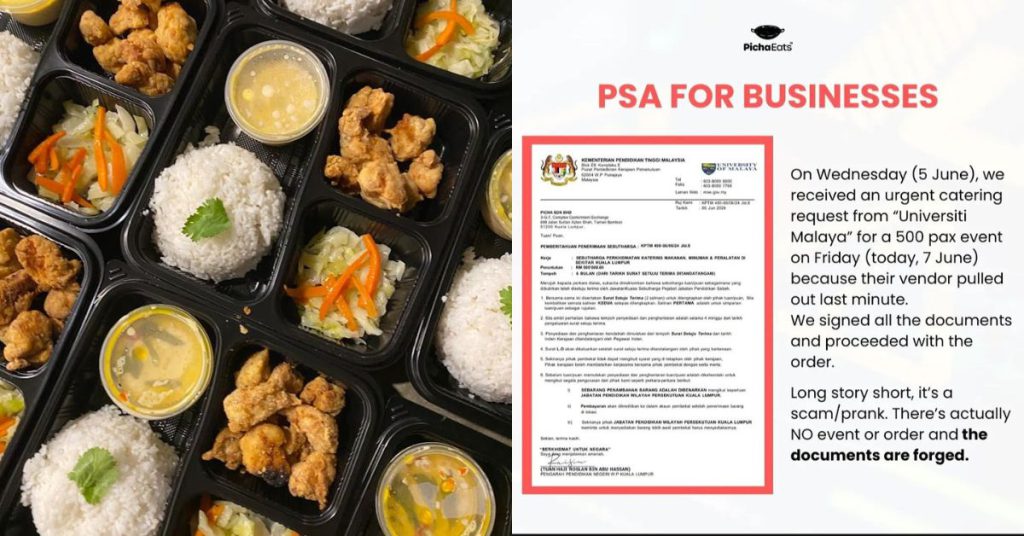
PichaEats, a Malaysian social enterprise and catering company known for working with refugee chefs, was targeted by a prank order for 500 meals today.
The company received a seemingly urgent catering request from someone posing as “Universiti Malaya (UM)” for a last-minute event of 500 people.
Believing it to be legitimate, PichaEats signed an official-looking letter bearing the Ministry of Higher Education and UM logos. Their 15 chefs went ahead and purchased ingredients for the event.
Unfortunately, it turned out to be a supposed scam, one that they only uncovered after the ingredients were bought.
Community steps up
Facing this situation, PichaEats posted on Facebook this morning an open plea for help to recoup some losses and prevent the purchased ingredients from going to waste.
The response was overwhelmingly positive. Within three hours, a community of netizens had rallied behind PichaEats, completely buying out all the prepared meals.
“Thanks to the community, the 15 Picha Chefs are not at a loss. We truly appreciate your incredible support!” it said in a Facebook Post.
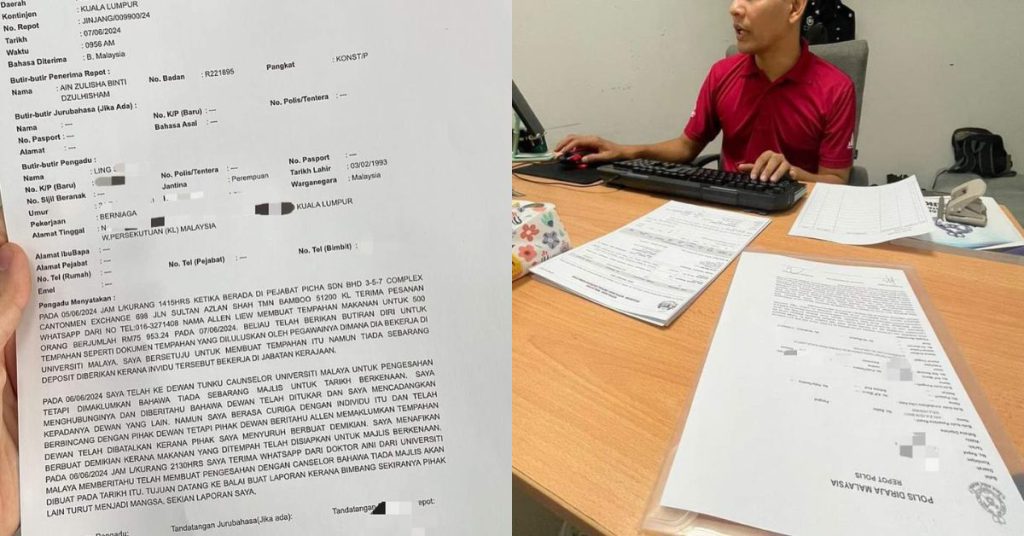
Learning from the experience
To prevent this from happening again, PichaEats has taken some important steps:
- They filed a police report.
- They notified UM about scammers using their names.
PichaEats hopes that by sharing their experience, other businesses can avoid similar scams. “We learned it the hard way today,” they shared, hoping that it would be a lesson to others as well.
Just a day earlier, another catering company had reportedly also fallen for the same trap, PichaEats shared.
So, here’s how entrepreneurs can be careful in the future:
- Use verification tools: Use tools and websites to check the legitimacy of phone numbers and business inquiries, like https://semakmule.rmp.gov.my/. This is what PichaEats advises to other businesses.
- Verify orders directly: Always call the actual client to verify the order, especially for large ones. Direct communication can better confirm the order’s legitimacy.
- Implement payment processes: Have clients pay upfront or make a deposit. This helps ensure the order is legitimate and provides some financial security if it gets cancelled.
- Don’t rush big quotations: Take your time with large orders. Make sure all details are clear and verified before committing resources.
- Be sceptical of big names: Don’t trust an order just because it uses the name of a well-known company or institution. Pranksters often use reputable names to gain trust.
By staying vigilant and adopting these measures, businesses can better protect themselves and their resources from similar happenings.
Also Read: Net zero explained: Why Amazon, Microsoft, & M’sia itself are pledging to be carbon neutral
Featured Image Credit: PichaEats
We sent our Gen Z writer to stay at this Klang senior centre that starts from RM8.5k/mth
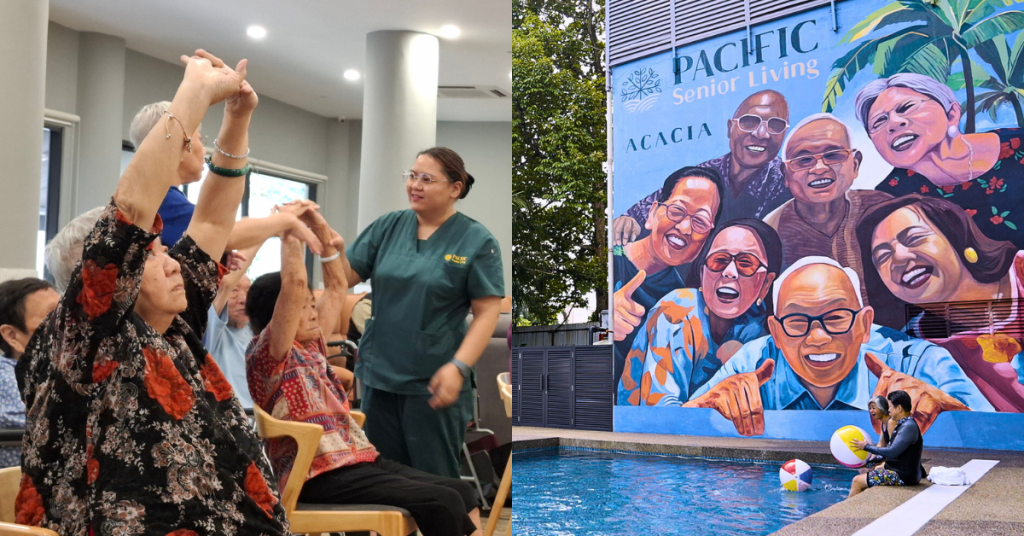
Spacious. Modern. Luxurious.
Pick any one of those words to describe Acacia by Pacific Senior Living (Acacia) and you wouldn’t be wrong.
Walking in, it felt like I was stepping into a regular Airbnb. Even its smallest accommodation (the Superior Room, 312 sq ft) is equipped with a smart TV, writing desk, and mini fridge. If you’re not a fan of the decor, you’re welcome to spruce up the room and make it feel like home.
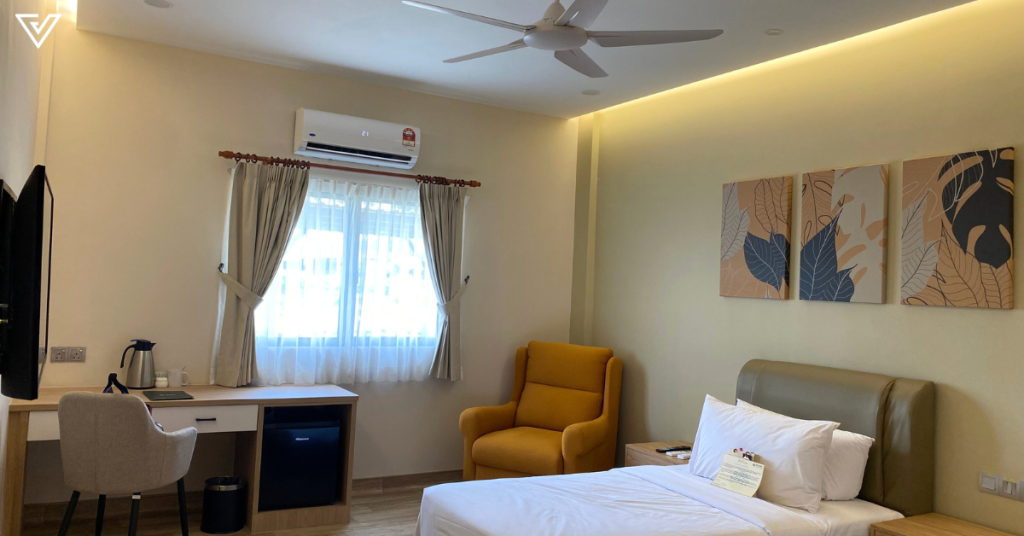
This would be nothing out of the norm… except for the fact that this was a senior living centre.
And I was here because my colleagues thought it would be real funny to send one of the youngest team members to live as a senior at this new centre for a few days, upon invitation.
As far as first impressions go, I’m impressed.
This is quite a far cry from the usual senior homes you’d find across the nation in neighbourhoods. Which is exactly what makes this relatively new senior living centre unique.
Instead of a communal space with multiple beds, Acacia prides itself on offering privacy to all its residents. Everyone gets a fully furnished room to themselves that comes with an ensuite bathroom.
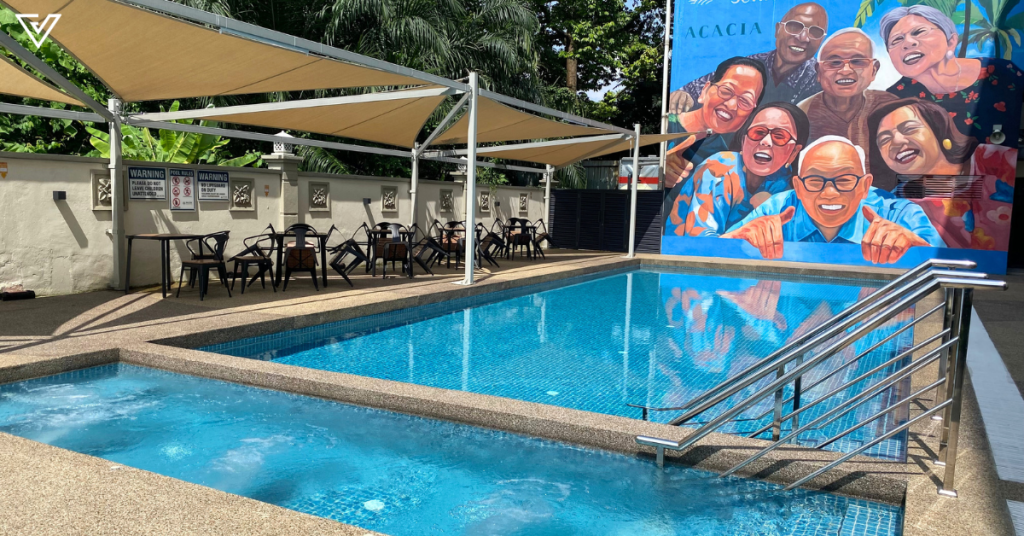
Out of the room, it has purpose-built facilities to ensure that seniors are able to enjoy a relaxed retirement while staying healthy. This includes a mini theatre and karaoke room, a gymnasium, and a jacuzzi among others.
These are all lovely, but I had to find out if this was really worth the starting price of RM8,500 per month to stay there.
Resort-styled living for seniors in Malaysia
Full disclosure: I am by no means a senior citizen. In fact, I’m at the age where my frontal lobe is just about to fully develop.
So I might not be the most suitable person to evaluate the space and all that Acacia has to offer for its target market. But I have taken care of a relative with critical illness before and understand the needs of proper care.
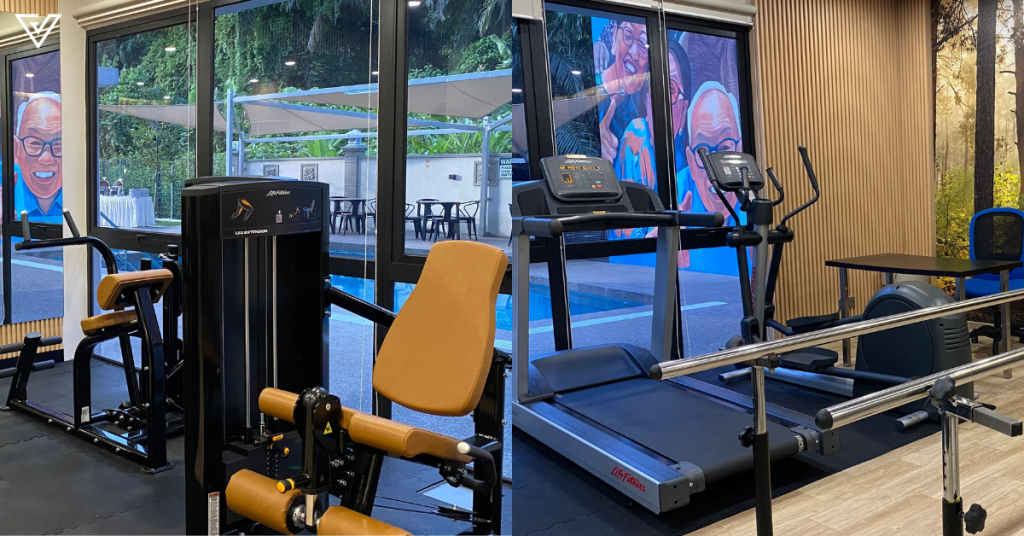
It’s not exactly the same since Acacia isn’t actually for those in need of serious medical attention. It doesn’t have the necessary facilities and equipment to care for those with advanced medical conditions like stroke and severe dementia.
As such, residents actually go through a prior evaluation by Acacia’s team of doctors and nurses before they’re accepted. The evaluation also helps to determine the tier of care required and the associated charges.
“This process will ensure that we only accept residents who are able to fully enjoy the services provided,” Emily Yap, Acacia’s sales manager, explained.
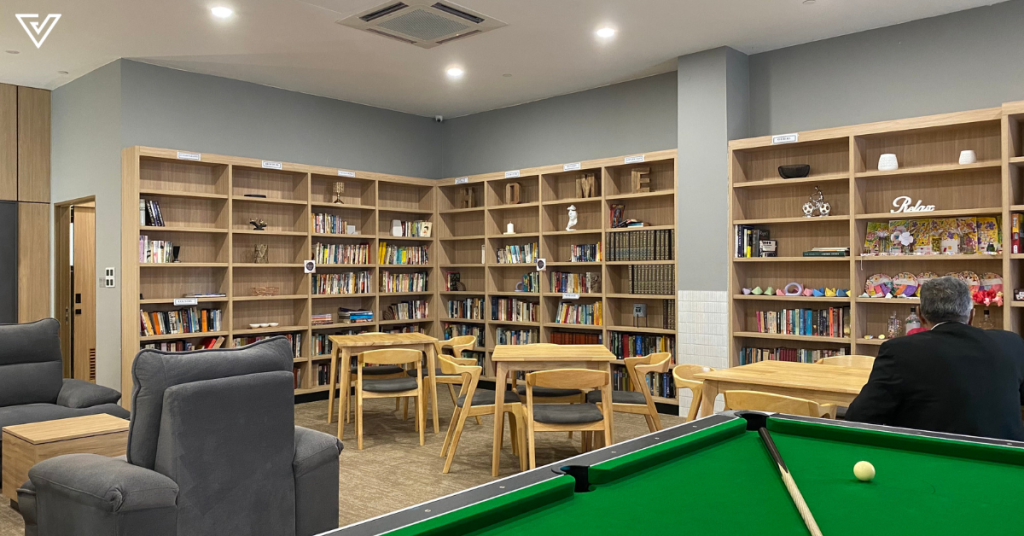
It’s a fair reasoning, as part of the reason why prices start from RM8,500 is due to the resort-like amenities available. For example, someone who is paralysed might not be able to fully make use of the heated jacuzzi or play a round of billiards.
That said, the centre factors in many other aspects that make it elderly-friendly.
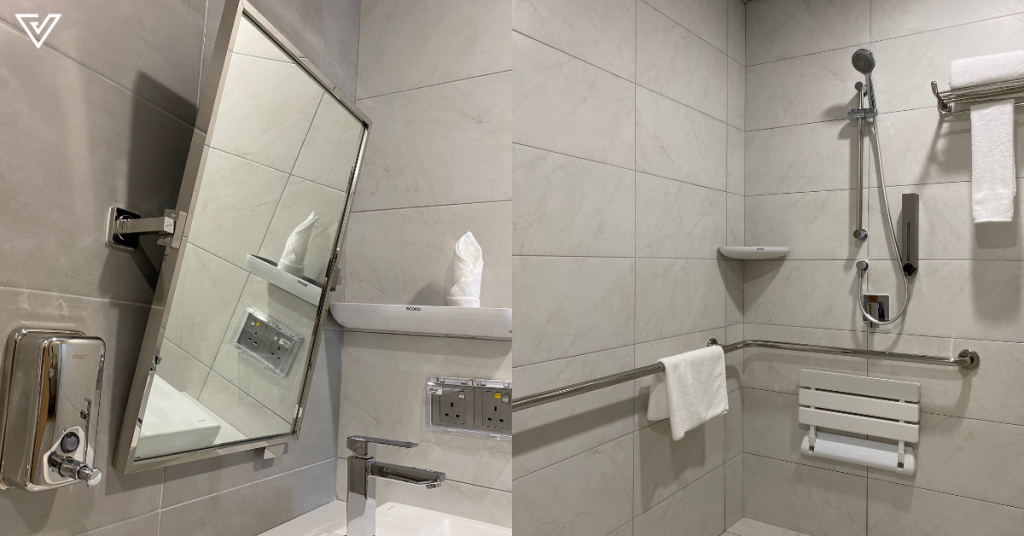
The whole place is fully wheelchair accessible and they also provide some wheelchairs on site, should residents need it. Handrails are fixed on almost every wall including the corridors, bathroom, and even the swimming pool.
By the bedside and shower, you’ll find emergency call bell buttons to alert the nurses’ station at each wing of the centre. When pressed, it won’t stop ringing until a caregiver enters the resident’s room and disables it.
This essentially guarantees that Acacia’s staff will attend to the needs of residents 24/7.
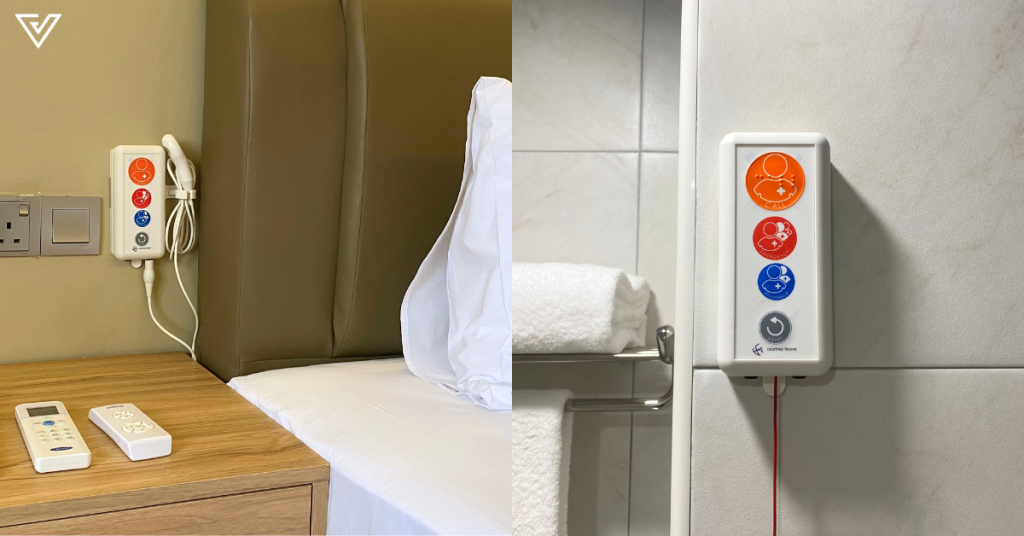
Should they require immediate hospital-level medical attention, they’ll be transported to one of the nearest hospitals. This could be KPJ Klang Specialist Hospital, Sri Kota Specialist Medical Centre, Bukit Tinggi Medical Centre, Columbia Asia Hospital, or HTAR Klang. All of which are within 10km away from Acacia.
Speaking on this, Dr Ramnan Jeyasingam (CEO and Director of Health Services at Pacific Senior Living) shared, “That’s one of our pre-requisites when we’re opening up any new senior living centres. We factor in that medical emergencies will happen in this age group. That’s why we also have an AED kit on every floor.”
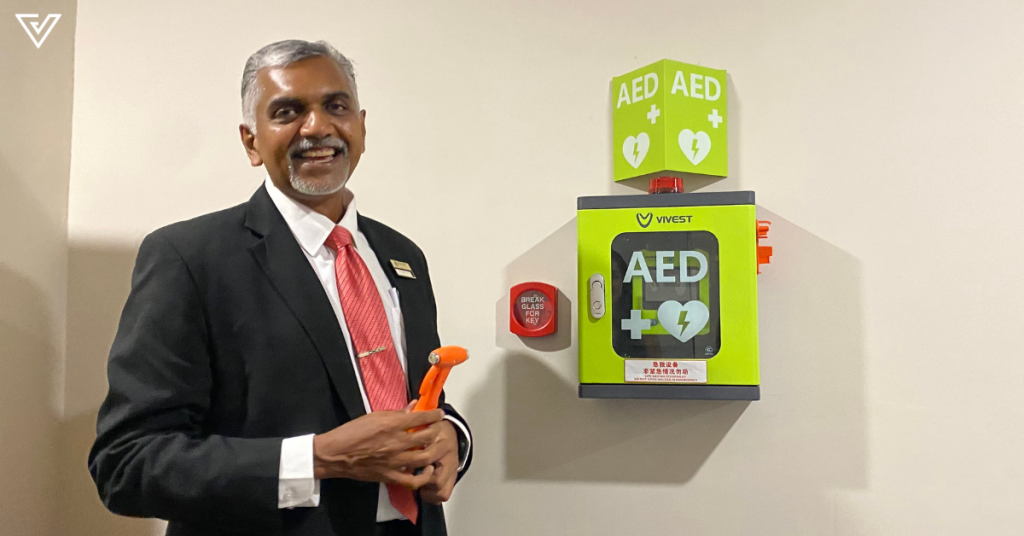
On a daily basis, a visiting doctor will come in and check everyone’s vital signs at least twice a day to ensure they’re all in good health.
A stable community for the elderly
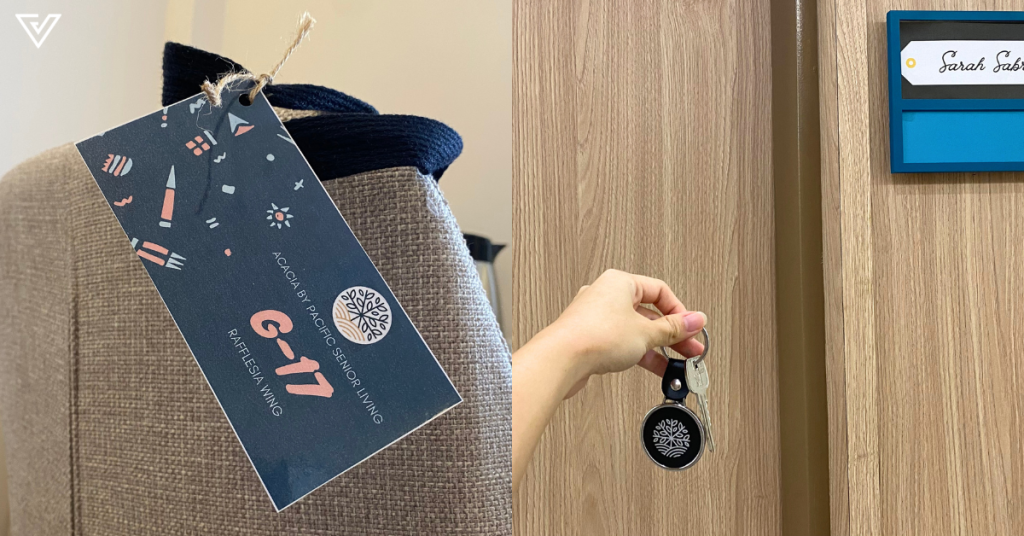
During my 2D1N stay, I was accommodated in its Superior Room and was treated to five meals a day: breakfast, lunch, tea time, dinner, and supper. The only downside was that we didn’t dine with the residents nor were we served the same kind of food.
But Emily told us that the meals cooked for the residents are customisable and based on their dietary preferences. None of the dishes contain pork, beef, or alcohol due to cultural sensitivities.
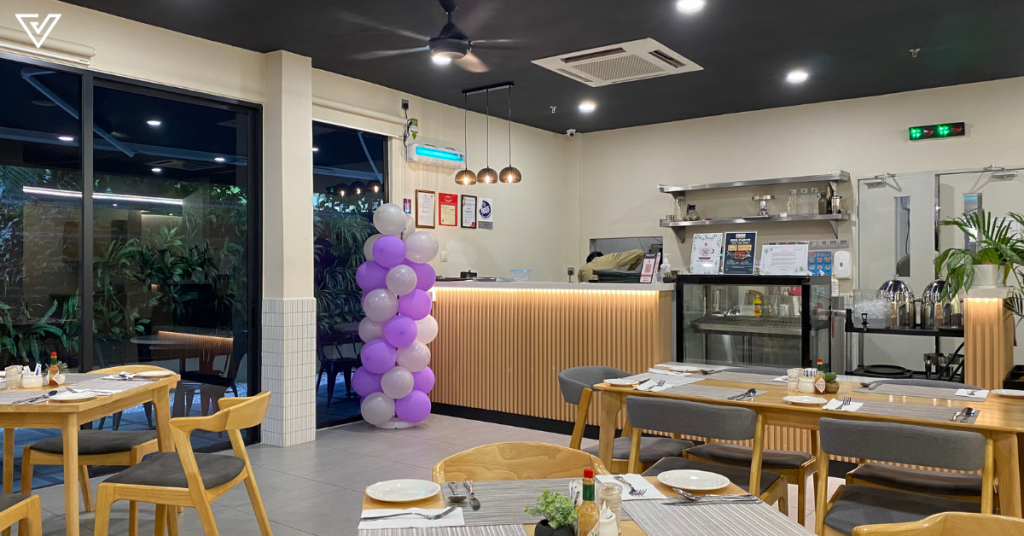
Alternatively, there’s the in-house Silver Spoon Cafe serving a range of affordable local and western cuisine. Its menu includes dishes like chicken chop (RM15), Penang fruit rojak (RM10), and vegetarian fried rice (RM10).
We didn’t get to try this as all meals were catered to us, but we were told that a good deal of non-residents frequent there during lunchtime. The cafe is currently open to the public, so you can try the food for yourselves too.
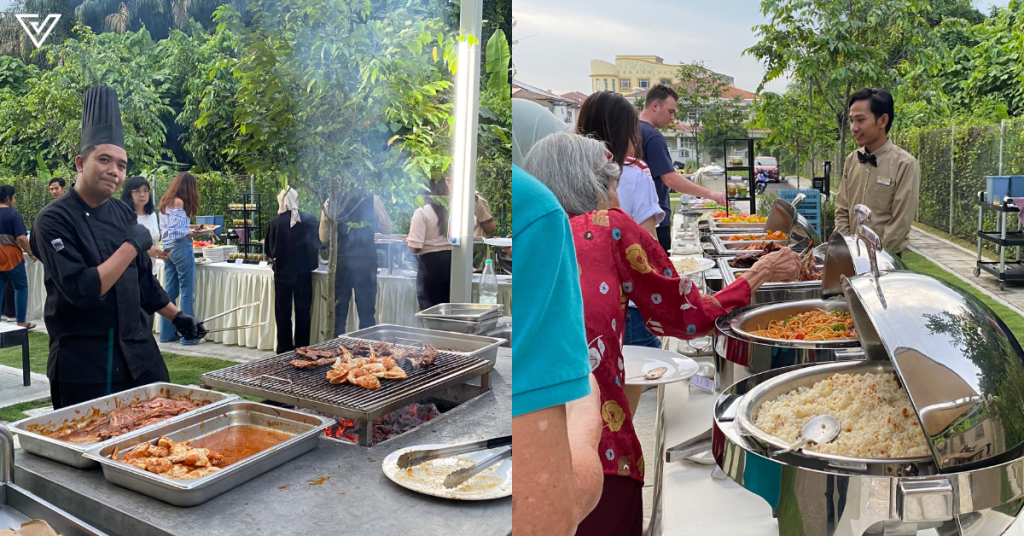
Sometimes, Acacia also hosts barbecue nights by the swimming pool. A chef would be grilling either chicken or lamb cutlets, while hired musical talents jazz things up.
I didn’t see any of the residents dancing the night away, but maybe they were just shy around us media guests.
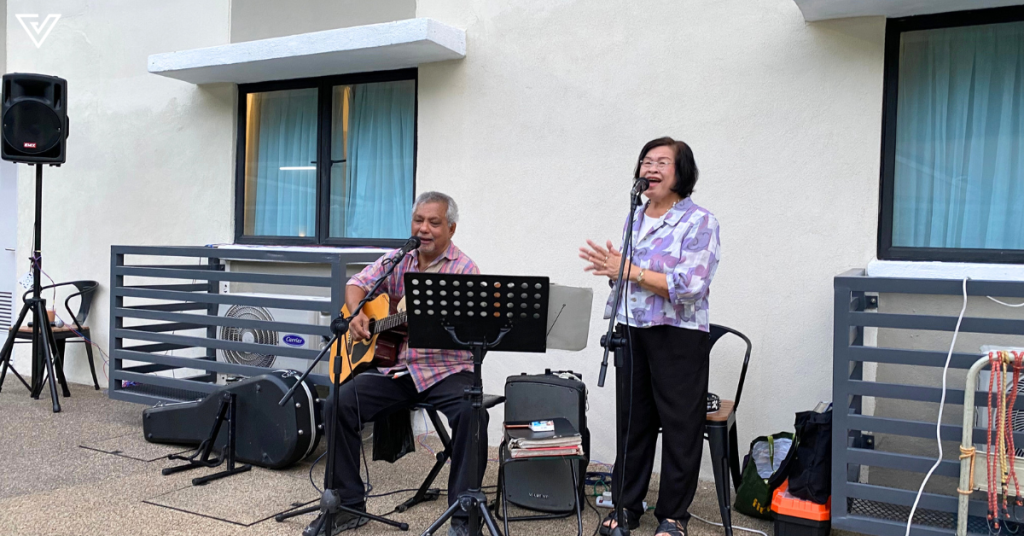
Another function we were able to attend alongside the residents was their morning aerobics and recreational activities session. Held every morning at Acacia’s Silver Club, caregivers will coach and assist the residents. They seemed really gentle and encouraging, helping the elderly move around and play.
This ensures that their muscles are kept strong and their mobility is maintained. But more than that, it offers them the opportunity to socialise with other residents and caregivers.

Personally, I find this to be the most important aspect of a senior living centre. People tend to become depressed when they’re left alone for too long, which is usually the case for the elderly.
According to a report by The Pennsylvania State University, socialising improves the elderly’s mental health and cognitive function. This will slow down the progress of diseases like Alzheimer’s and dementia.
Is it actually worth the hefty price tag?

Currently, there are about 22 residents who have moved into Acacia.
It’s only been a few months since the assisted living centre first opened, but I could see that a small community has already grown. The elderly folks have made friends with each other and the staff members also seem to be quite tight-knit.
Seeing that made me, as an outsider, feel like this was a good place to settle down upon retiring. I could definitely see myself staying here if my plans to move to the countryside fell through.
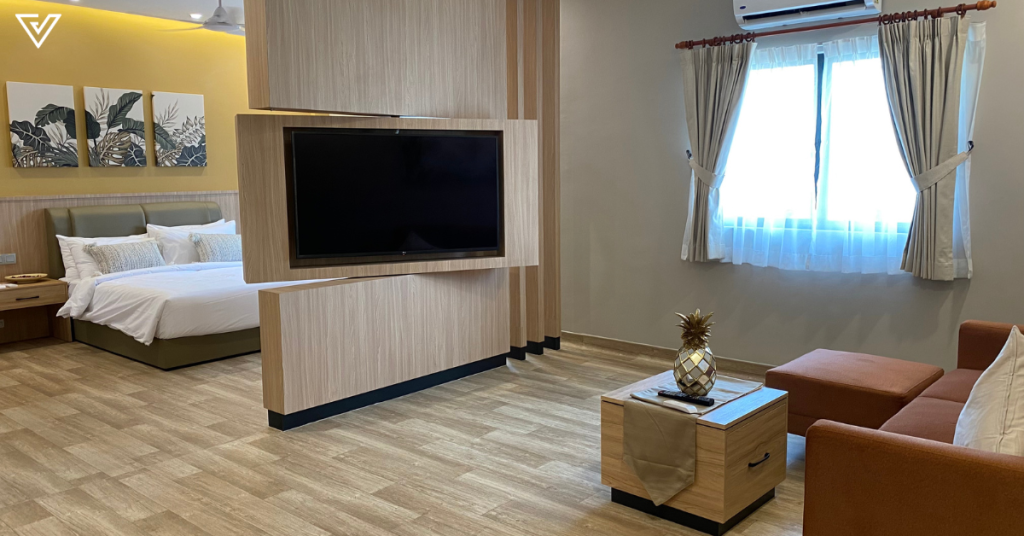
The starting price of RM8,500 per month is still pretty steep, though. With that in mind, I would argue that it’s an establishment that caters to the more well-off in society. The occupancy demographics here do attest to that as well. Acacia’s staff mentioned that a good chunk of residents had children working abroad.
However, the price is also justified. As Dr Ramnan explained, much of the fees goes towards the manpower costs required for the daily care of residents.
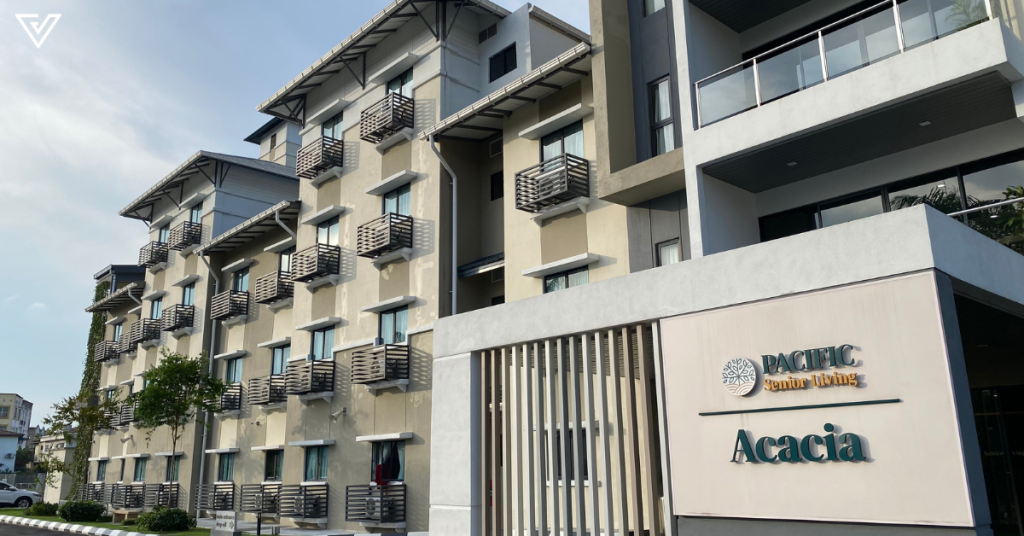
The CEO also disclosed that Pacific Senior Living is targeting to have two more centres in the Klang Valley. In the long run, they hope to have one in every major city across the country.
Considering that Malaysia is seeing a sharp increase in our ageing population (11.1% are people aged 60 and above), it’s important to look into improving the current landscape of senior living centres.
Even if many probably won’t realistically be able to afford Acacia, the space serves as a good example of what newer establishments could aspire to offer.
- Learn more about Acacia by Pacific Senior Living here.
- Read other articles we’ve written about Malaysian startups here.
Also Read: Net zero explained: Why Amazon, Microsoft, & M’sia itself are pledging to be carbon neutral
Featured Image Credit: Acacia by Pacific Senior Living
No more unicorns: It’s time for SEA to rethink its startup success model. Here’s why.
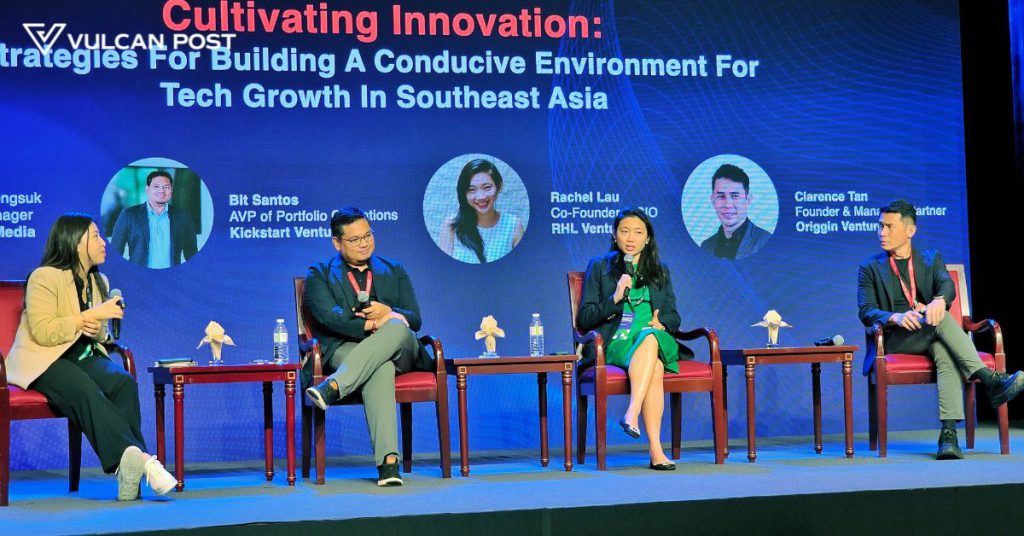
It’s common to hear about the hunt for the next unicorn—those billion-dollar startups that seem to be the ultimate marker of success in Southeast Asia’s vibrant and diverse tech landscape. However, this might not be the only, or even the best, path to sustainable growth for the region.
Let’s delve into why the unique environment and tech talent dynamics in Southeast Asia suggest that a different approach could be more beneficial, according to the speakers from BEYOND Expo 2024 at Macao.
The real talent issue: Exposure over skills
Rachel Lau, RHL Ventures co-founder and chief information officer shared that Southeast Asia boasts impressive engineering capabilities, particularly in hardware, thanks to decades of investment by giants like Intel and Seagate in countries like Malaysia. Yet, there’s a notable gap in software engineering skills.
“I think tech talent in Southeast Asia is pretty good. But the difference is, I think, a lot of tech talent lack exposure,” Rachel asserted.
Fresh graduates in Southeast Asia often have yet to encounter the wide array of problems faced by their counterparts in more developed markets. This lack of experience means they have different instinctive reactions or feedback mechanisms.
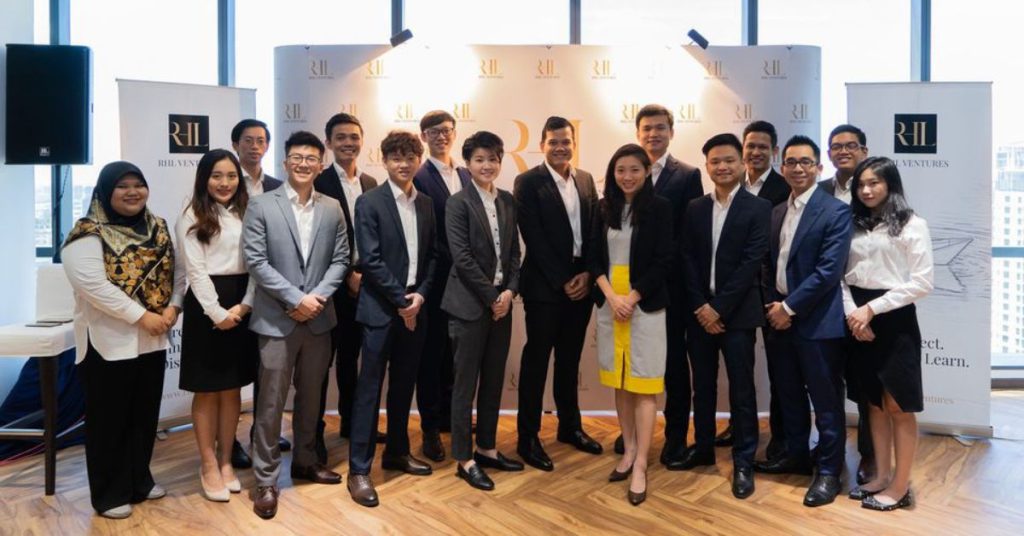
“In our company, we hire a lot of fresh grads, and everyone thinks I’m absolutely crazy in doing that, and we train them from young. But what I’ve given them more leeway is to go meet more people.”
“The more people you meet, the more you talk, the more startups that you see, you know what is good and what is bad,” she said. This exposure helps bridge the gap between textbook knowledge and practical problem-solving skills.
The time crunch for tech talent
Kickstart Ventures’ assistant vice president of portfolio operations Bit Santos added another layer to this discussion, pointing out that while Southeast Asia has quality tech talent, these individuals often lack the opportunity to develop their skills due to the high-pressure environment of venture-backed startups.
“There are expectations about growth and success,” he said.
Many people don’t give talented individuals the time to figure things out. The fast-paced nature of these businesses means that instead of nurturing and developing talent, companies often opt to bring in experienced professionals from outside.
Bit believed that with enough time, local talent would thrive. However, the current business climate doesn’t always allow for this learning curve, which is a significant hurdle for the region’s tech ecosystem.
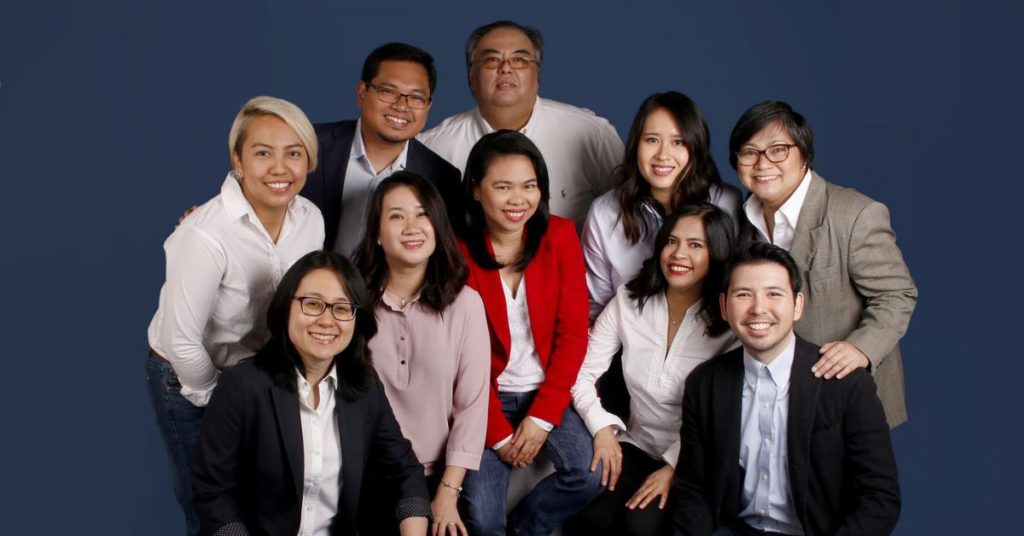
The talent drain and economic realities
One of the biggest challenges Rachel highlighted during the panel discussion is the talent drain.
High-skilled workers often leave for greener pastures in places like Singapore, London, or the US, where pay is significantly higher.
“The technological gap is too big, and so is the pay,” Rachel explained. This disparity makes it hard to retain top talent.
Efforts are being made to address this, such as raising minimum wages in Malaysia. However, monetary concerns remain a major driving force behind these migrations.
Rachel emphasised that ensuring competitive compensation is crucial, alongside creating an environment where talents can balance personal needs and professional growth.
Why SEA doesn’t need a herd of unicorns
People often overlook the crucial point that Southeast Asia’s economic and cultural landscape is vastly different from that of the US or China.
Rachel noted that the region is characterised by a multitude of small and medium-sized businesses rather than a few dominant unicorns.
“In Southeast Asia, success looks very different,” she said.
Instead of aiming for a few massive unicorns, having 20 successful smaller tech companies can be equally, if not more, beneficial.
For instance, Penang’s semiconductor industry doesn’t have a single standout name but hosts around 20 companies each valued between one to two billion dollars. This cluster of firms supports hundreds of smaller businesses, creating a robust and diversified ecosystem.
The key takeaway is that Southeast Asia should embrace its unique structure. For decades, Silicon Valley’s startup model of raising capital, scaling rapidly, and flipping for profit has been the standard.
However, this approach is not always applicable in regions like Malaysia and Southeast Asia. The region’s diversity—in culture, markets, legal systems, and economic environments—means that a one-size-fits-all approach doesn’t work. Recognising and nurturing smaller successes can build a strong, resilient tech ecosystem.
By focusing on broadening exposure for young talent, allowing time for growth, ensuring competitive pay, and celebrating smaller successes, the region can create a thriving tech landscape that’s uniquely its own.
Also Read: Net zero explained: Why Amazon, Microsoft, & M’sia itself are pledging to be carbon neutral
Featured Image Credit: Vulcan Post
Offering up to RM20mil of financing, Alliance Bank’s accelerator is now accepting applicants
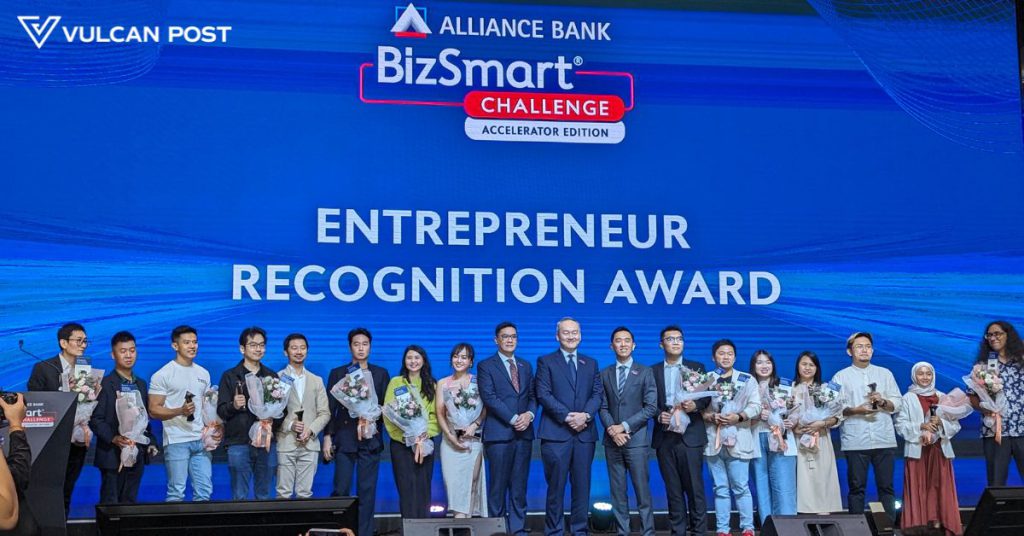
Alliance Bank Malaysia Berhad has once again launched its Alliance BizSmart Challenge Accelerator (BizSmart Challenge), marking its tenth anniversary.
This seventh iteration of the challenge, which aims to empower and accelerate the growth of aspiring entrepreneurs, has significantly expanded its eligibility criteria, making it accessible to a broader range of small and medium-sized enterprises (SMEs).
Expanding horizons for more SMEs
Whether you’re a tech startup, a traditional business undergoing digital transformation, or an innovative company with a unique business model, this challenge seeks dynamic and innovative SMEs ready to pitch their business ideas and plans.
Here are the criteria for SMEs applying to the accelerator:
- Business in operation for 12 months to 10 years
- Business annual sales turnover of RM500,000 to RM40 million
- Businesses must be registered with Suruhanjaya Syarikat Malaysia (SSM)
- At least one of the company owners needs to be a Malaysian
- The company owner or director must not be related to the panel judges
Applicants can visit the official BizSmart Challenge website to apply by July 15.
Key benefits and incentives
Participation in the BizSmart Challenge offers an array of benefits designed to foster business growth and innovation.
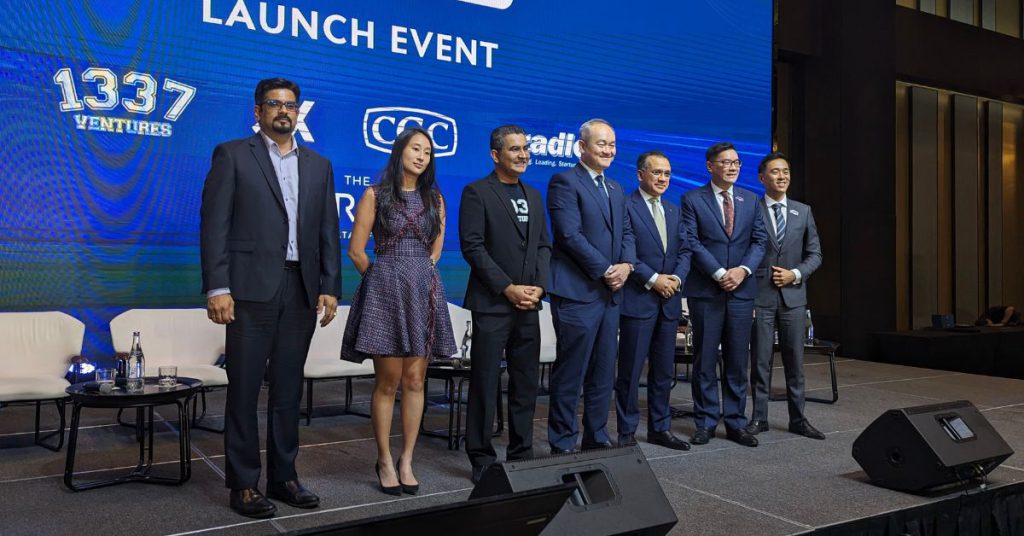
“For the first time in the BizSmart Challenge history, this year will also feature an opportunity for the top 30 finalists to pitch their business plans and ideas to venture capital investors from 1337 Ventures and 5X Capital,” it said in a press release.
This platform allows entrepreneurs to secure investment funds and establish long-term partnerships essential for business expansion.
Besides, the top 10 finalists will compete for a share of cash prizes, mentorship, brand exposure, and business training collectively valued at up to RM2 million. They will also have access to preferential financing of up to RM20 million from Alliance Bank.
Additionally, participants will benefit from tailored business coaching sessions focusing on crucial areas such as SME challenges, the halal industry, and sustainability.
A highlight of the challenge is a three-day accelerator programme conducted by 1337 Ventures. This programme helps the top 30 finalists refine their business plans and pitching strategies, preparing them for high-stakes presentations.
Finalists can also leverage the resources, experience, and expertise of programme partners including 1337 Ventures, 5X Capital, Credit Guarantee Corporation Malaysia Berhad (CGC), and Cradle.

“We recognise that business owners face various challenges, especially during the start-up phase, from securing funding to accessing relevant business coaching. Hence, we are partnering with experts in different fields who can address the diverse needs that they have.”
“As a bank that aspires to become The Bank For Life for our customers, we want to help businesses succeed at every stage of their life cycle, offering them differentiated solutions to meet their unique needs as they grow,” said Mr Kellee Kam, Group Chief Executive Officer of Alliance Bank.
Join the ranks of distinguished alumni
Since its inception in 2013, the BizSmart Challenge has received over 2,200 submissions and supported more than 155 finalists through training and mentorship. The programme has a track record of nurturing successful businesses, with notable alumni including:
Learn from the best at BizSmart business conference 2024
In addition to the challenge, Alliance Bank will host the BizSmart Business Conference 2024 on July 16, with the theme “Business Beyond Tomorrow”.
This one-day ticketed event at W Hotel Kuala Lumpur aims to inspire and educate entrepreneurs through panel sessions, fireside chats, and breakout sessions.
Speakers from HEXA Food, Montigo Malaysia by RPG Commerce, Mamee, Venture Capitalists, and past BizSmart Challenge alumni will share their experiences and insights.
The conference features two sessions: the morning session tailors to SMEs with less than five years of operations, while the afternoon session focuses on established SMEs undergoing generational leadership transition.
With a host of benefits, expert mentorship, and extensive networking opportunities, this Alliance Bank BizSmart Challenge aims to offer everything you need to propel your business forward.
We look forward to seeing SMEs that have the potential to take the first step towards accelerating their business turn their dreams into reality.
- Learn more about Alliance Bank Accelerator here.
- Read other articles we’ve written about Malaysian startups here.
Also Read: Net zero explained: Why Amazon, Microsoft, & M’sia itself are pledging to be carbon neutral
If you think your company can ignore ESG, think again
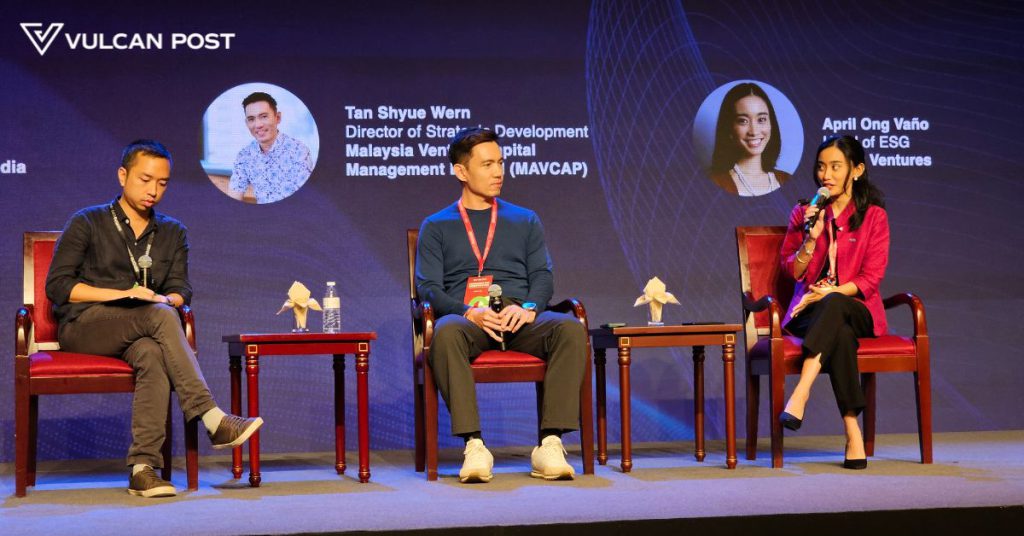
Ignoring Environmental, Social, and Governance (ESG) factors is not just a missed opportunity in today’s business world—it’s a risk.
ESG is a framework used when assessing an organisation’s practices and performances regarding sustainability and ethical issues.
With Malaysia’s ambitious goal to achieve carbon neutrality by 2050, the urgency for companies to adopt sustainable practices is clear.
Speakers from BEYOND Expo 2024 at Macao shed light on why ESG is now a critical driver for startups in Malaysia and beyond.
Not a theory, it’s a practice
Malaysia Venture Capital Management Berhad’s (MAVCAP) strategic development director Tan Shyue Wern emphasised that true ESG goes beyond fancy reports.
It’s about integrating sustainable practices into everyday operations. This aligns perfectly with Malaysia’s ambitious goal of achieving carbon neutrality by 2050, he said.
“I always say, ESG is not a framework. ESG is not a theory. ESG is always a practice. So you have to practise every single day in what you do, in the E, S, and G components of it,” he shared.
Startups that embrace sustainable practices early on will be well-positioned for the future.
“So what we’ve done, we’ve taken all this feedback, run a few workshops as well, and developed an ESG toolkit. So that toolkit is supposed to help our fund managers if they don’t have a framework among their portfolio company,” he said.

According to him, this toolkit helps them assess their sustainability journey and identify areas for improvement, empowering them to become more sustainable businesses.
Impact investing is about more than just green startups
April Ong Vano, head of ESG from Quest Ventures, clarified a common misconception: impact investing isn’t limited to just “green” startups. It’s about identifying companies across all sectors that create a positive social and environmental impact, alongside financial returns.
This opens doors for a wider range of Malaysian startups to contribute to a sustainable future.
Whether it’s a social enterprise empowering local communities or a tech startup developing innovative solutions for renewable energy, companies that weave positive impact into their core business models become attractive investment opportunities.
Both venture capitalists (VCs) agree that strong ESG practices provide a significant competitive edge.
Companies with a demonstrably positive ESG performance attract more investors and gain access to international markets.
“For example, strict ESG requirements in Europe can act as a barrier for exporters who don’t comply. In Malaysia as well, we export to Europe quite a lot, and we have to meet their requirements. If we don’t, we lose out in that sense,” said Shyue Wern.
By prioritising ESG, Malaysian startups can ensure they remain competitive in the global marketplace.
The role of VCs in building a sustainable ecosystem
April emphasised the crucial role VCs play in promoting a sustainable startup ecosystem.

“Quest Ventures, for instance, leverages its involvement in early-stage investments to help founders build a culture of good governance from the ground up.”
“This integrates ESG seamlessly into the startup’s DNA, making it a natural part of their business model rather than an afterthought,” she said.
It’s not just about the environment
While environmental and social impact depends on the specific industry, good governance is essential for all startups, said April.
This includes treating employees fairly, having strong ethical practices, and responsibly engaging with stakeholders.
By focusing on these aspects, startups build a strong foundation for sustainable growth and establish themselves as trustworthy players in their respective fields.
ESG isn’t a burden for Malaysian startups. It’s a strategic approach that unlocks opportunities for growth and leadership in a world increasingly focused on sustainability.
By integrating ESG as a core practice, startups can create positive change, attract investors, and thrive in the long run. They can become not just successful businesses, but also responsible members of a global community striving for a sustainable future.
Also Read: Modern data centres could be the solution your company needs, this webinar will explain how
Featured Image Credit: Vulcan Post
Overtaking Tesla: Upcoming EVs That Will Make Everyone Ditch Last-Gen Rides
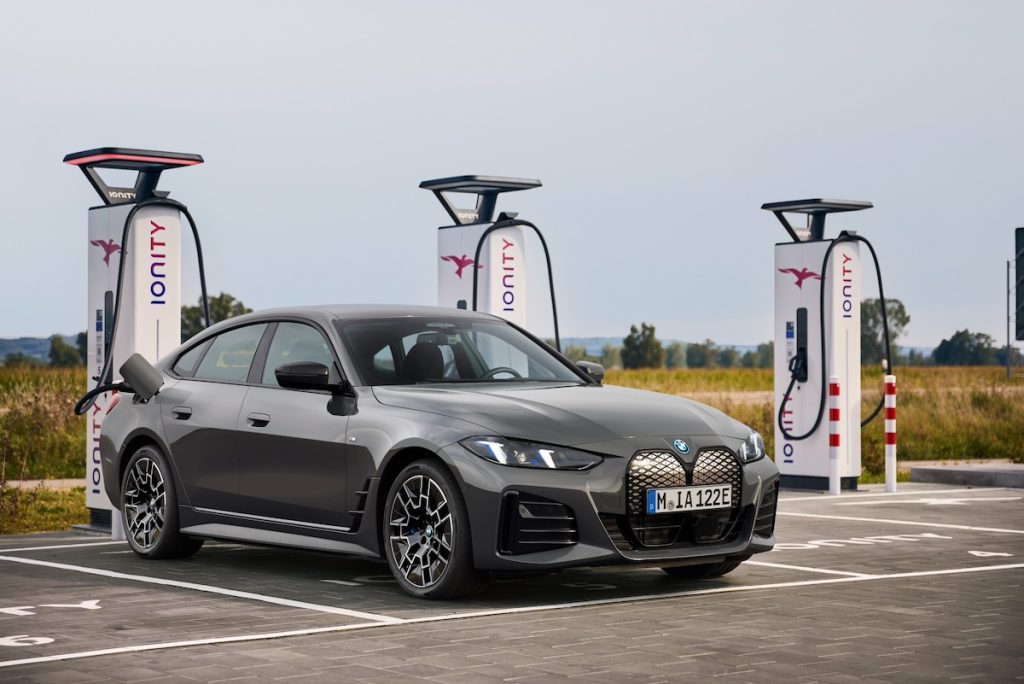
Prices are estimates based on car prices at the time this article was published.
In January 2024, more EVs were registered in Singapore than Internal Combustion Engine (ICE) cars, which shows that Singapore is well on its way to mass EV adoption.
A Bloomberg Green analysis set the Tipping Point, which indicates the transition between early adopters and mainstream acceptance of EVs in a country, at 5%. We are likely to see EVs comprising more than 25% of new vehicle registrations in Singapore this year.
So, if you are looking for your next ride, here are seven upcoming EVs to entice you and turn you away from the last-generation fossil fuel machines.
Polestar 4
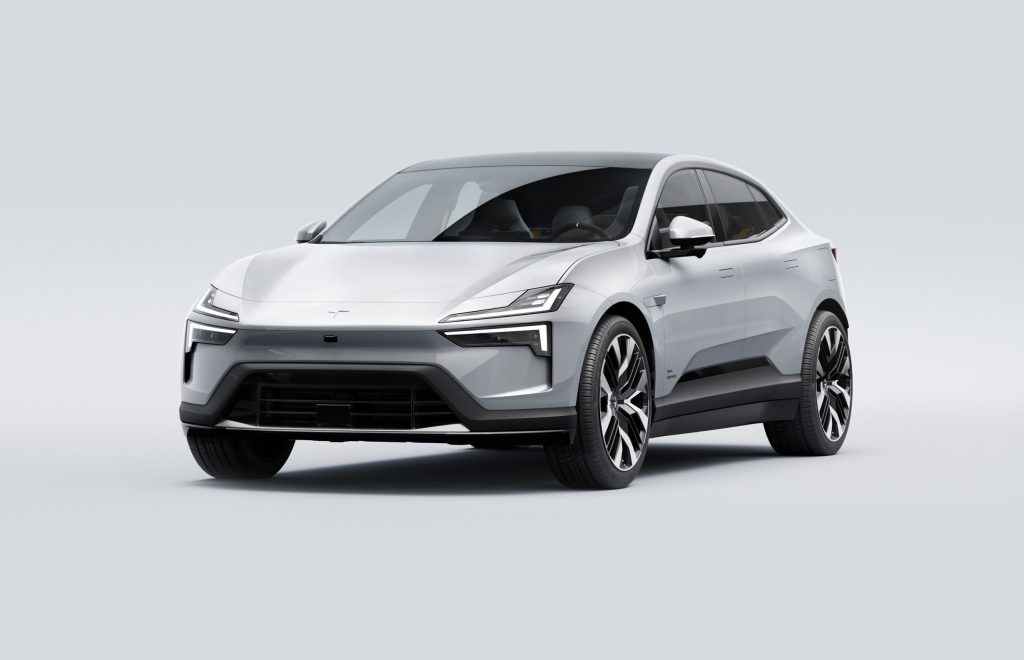
Volvo-owned Polestar 4 is a compact crossover SUV that fuses the design styling of a Scandavinian coupe with the functionality of a 4-door SUV. It has room to comfortably seat 5 people, though only the front seats have a massage function.
Pricing: $195,000 – $245,000 (without COE)
The Polestar 4 is now available for preview, and indicative prices have been disclosed as $195,000 for the Long Range Single Motor, and $245,000 for the Long Range Dual Motor. Both prices are without COE. The Polestar 4 is expected to go on sale in August or September 2024.
(Updated 14/06/2024)
| Model | Long Range Single Motor | Long Range Dual Motor |
| Motor | Single RWD | Dual AWD |
| System Power | 200 kW | 400 kW |
| 0-100km/h | 7.1 sec | 3.8 sec |
| Battery | 100 kWh | 100 kWh |
| Range (WLTP) | 620 km | 590 km |
| DC Charging | 10-80% in 30 min (200kW max) | |
| Infotainment | Android Auto OS, Apple CarPlay 15.4” display, 8 speakers, 5G eSIM, front seat massage function | |
Ora 07 Lighting Cat
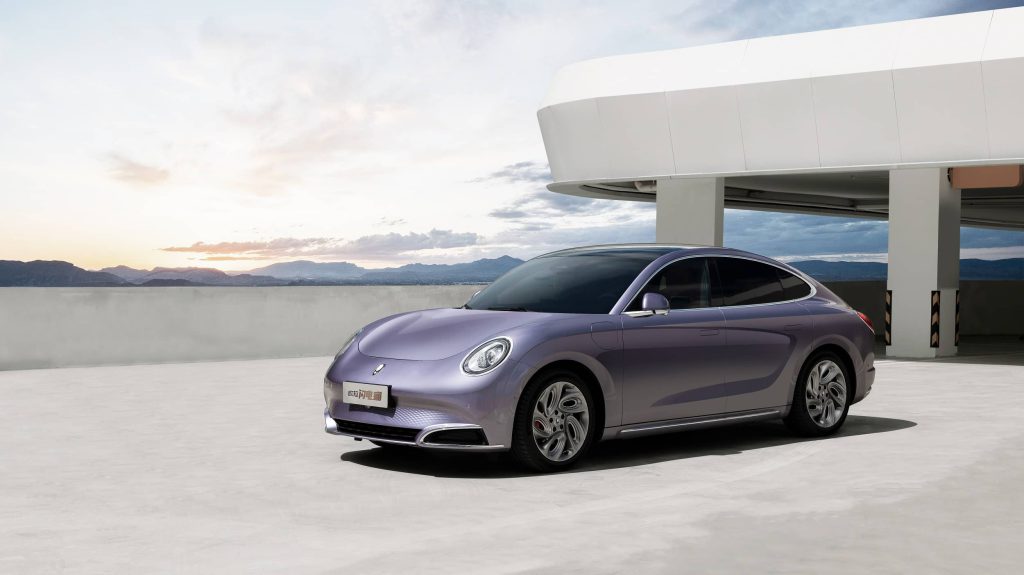
Chinese EV brand Ora, which debuted in Singapore last year with the 03 Good Cat compact, is set to expand its lineup with the Ora 07 Lighting Cat, a coupe sedan that just launched in Malaysia.
Expected Arrival: Q3 2024
Ora’s rounded design makes it stand out against its competition, especially when its goal is to compete with the Tesla Model Y and BYD Seal, the top two best-selling EVs in Singapore, in Q3 2024. Add in a plush PU leather interior, Android Auto and a comprehensive list of driver aids and safety sensors, including a 360-degree surround camera, and you can see why this EV is hotting up its market sector.
Estimated Pricing: $180,000 to $230,000+
If Singapore follows Ora’s global pricing trends, we expect the 07 Lighting Cat to be priced above the smaller 03 Good Cat, which is currently priced at $160,999, but just below the BYD Seal (priced at $199,888 to 240,888), so around $180,000 to $230,000, depending on model.
| Model | Long Range | Performance |
| Motor | Single FWD | Dual AWD |
| System Power | 150 kW | 300 kW |
| 0-100km/h | 7.9 sec | 4.3 sec |
| Battery | 83.5 kWh | 83.5 kWh |
| Range (WLTP) | 620 km | 590 km |
| DC Charging | 30-80% in 30 min (88kW max) | |
| Infotainment | Android Auto OS, Apple CarPlay 12.3” centre display, 11 speakers | |
BYD Sea Lion 7
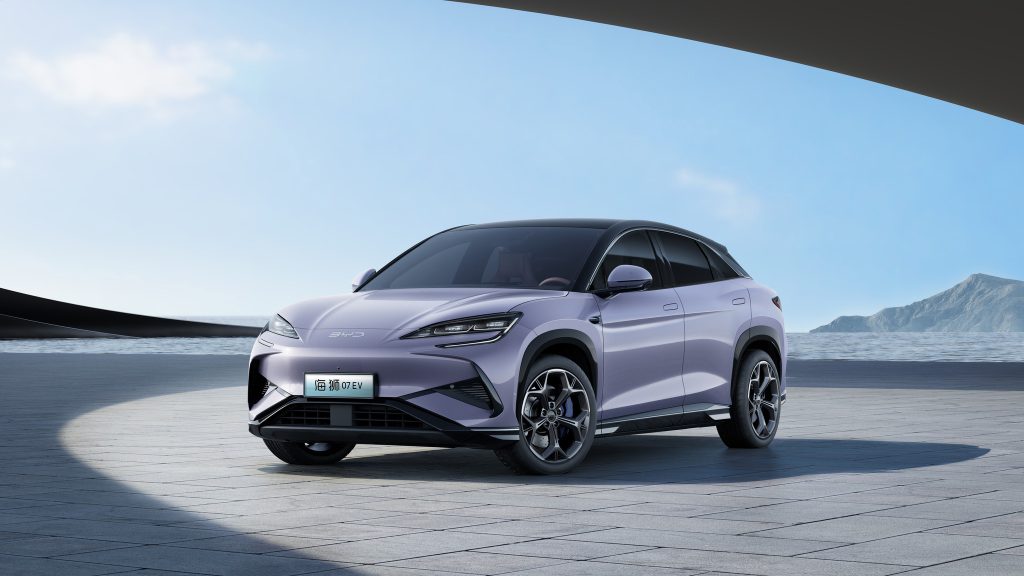
In the first quarter of 2024, 1,804 BYD EVs were registered in Singapore, accounting for 15% of all new vehicles registered during this period. This popularity is down to BYD‘s innovative marketing campaigns, competitive pricing for feature-rich vehicles, and discount deals for charging.
Expected Arrival: Q4 2024
The upcoming Sea Lion 7 is an electric SUV that launched in China in May 2024. Built on BYD’s e-Platform 3.0 Evo, it is designed to rival the Tesla Model Y, boasting similar dimensions and four models, though Thai motoring media recently conducted a preview on a right-hand drive variant and stated that three export models may be available.
Estimated Pricing: $220,000+
The BYD Seal is currently priced between $199,888 and $240,888, and as the Sea Lion 7 is a larger SUV model based on an upgraded Seal platform, it should be priced accordingly, which we estimate to be $220,000 to $270,000.
| Model | 550 Standard | 610 Long Range | 610 Smart | 550 4WD Smart |
| Motor | Single FWD | Single FWD | Dual AWD | Dual AWD |
| System Power | 170 kW | 230 kW | 230 kW | 390 kW |
| 0-100km/h | 7.3 sec | 6.7 sec | 6.7 sec | 4.2 sec |
| Battery | 71.8 kWh | 80.6 kWh | 80.6 kWh | 80.6 kWh |
| Range (WLTP) | 550 km | 610 km | 610 km | 550 km |
| DC Charging | 10-80% in 30 min (180 kW max) | |||
| Infotainment | AR-HUD, 15.6” centre display, 12 speakers | |||
BMW i4 Grand Coupe
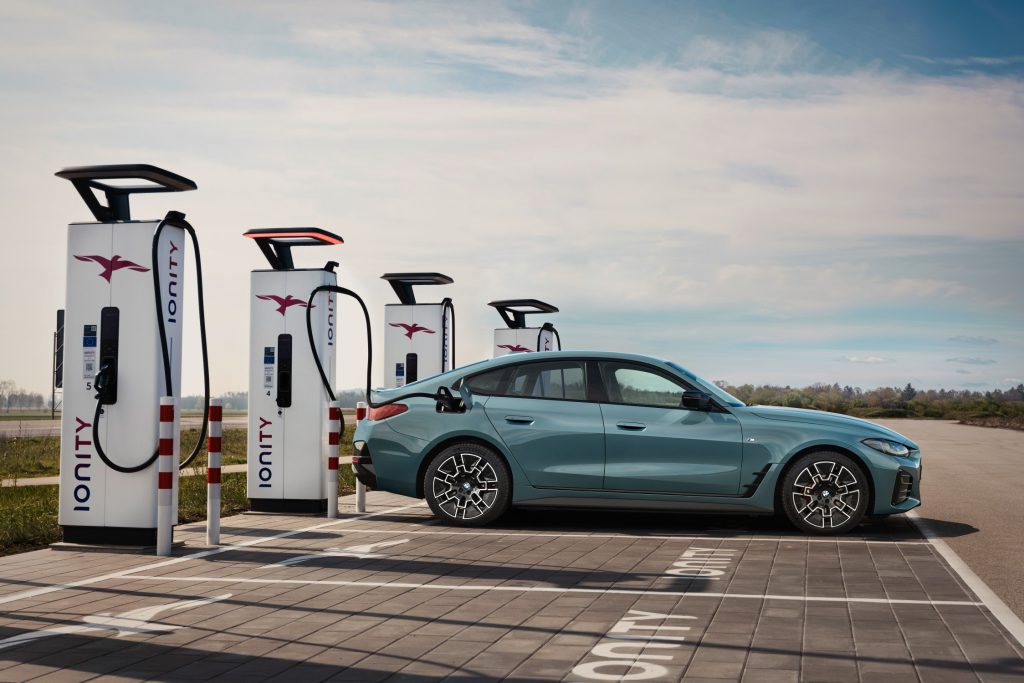
The BMW i4, BMW’s most popular EV worldwide, is set to make waves. The 2025 model has just entered production and is expected to arrive in Singapore by December.
Expected Arrival: December 2024
The 2025 i4 grand coupe will be offered in two rear-wheel-drive eDrive variants and two AWD xDrive models, including the stonking M50 xDrive, which has 400 kW total power.
Price Estimate: $326,000 – $460,000+
The 2024 i4 eDrive35 is priced at $326,888, and the 2024 i4 M50 goes for $452,888, so there shouldn’t be a major price difference as the 2025 model is a slight update and facelift.
| Model | eDrive35 | eDrive40 | xDrive40 | M50 xDrive |
| Motor | Single RWD | Single RWD | Dual AWD | Dual AWD |
| System Power | 210 kW | 250 kW | 295 kW | 400 kW |
| 0-100km/h | 6 sec | 7.7 sec | 5.1 sec | 3.9 sec |
| Battery | 67 kWh | 81.3 kWh | 81.3 kWh | 81.3 kWh |
| Range (WLTP) | 500 km | 600 km | 546 km | 520 km |
| DC Charging | 10-80% in 30-31 min (180/205 kW max) | |||
| Infotainment | BMW OS 8.5, Curved Display, Intelligent Personal Assistant, Apple CarPlay Android Auto, 5G eSIM | |||
Kia EV3

Kia’s EV9 is a hard act to follow, having recently won the World Car of the Year 2024 and the World Electric Vehicle 2024 awards, but the just-announced Kia EV3 compact EV SUV may just follow up on its sibling’s accolades. Kia has again combined a bold design with innovative technology, positioning the EV3 as a potential market leader.
Expected Arrival: Q4 2024
When the EV3 reaches our shores, we can expect two models, both equipped with the same 150 kW FWD electric motor. The standard EV3 will feature a 58.3 kWh battery, while the Long Range variant boasts an 81.4 kWh battery, enabling it to achieve a class-leading range of 600 km (WLTP).
Price Estimate: $150,000+
As the smallest EV SUV in Kia’s lineup, the EV3 should be priced just below the older EV6, which is currently priced at $150,999.
| Model | Standard | Long Range |
| Motor | Single FWD | Single FWD |
| System Power | 150 kW | 150 kW |
| 0-100km/h | 7.5 sec | 7.5 sec |
| Battery | 58.3 kWh | 81.5 kWh |
| Range (WLTP) | 500 km | 600 km |
| DC Charging | 10-80% in 30 min (105kW max) | |
| Infotainment | Android Auto OS, Apple CarPlay, 30” ultra-wide display, genAI Assistant, Harmon Kardon speakers. 5G eSIM, Kia Streaming service | |
Audi Q6 e-tron
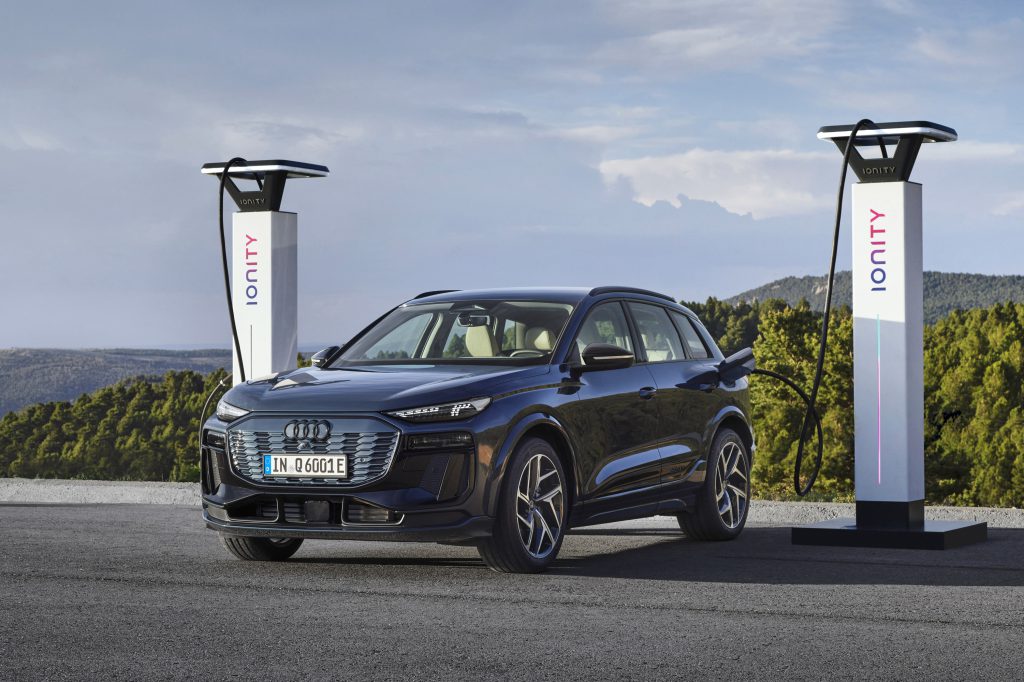
The Q6 e-tron is the first vehicle based on the Premium Platform Electric (PPE) that Audi developed in-house alongside Porsche. This platform was created specifically for high-volume EV production and integrates a newly developed lithium-ion battery with electric motors and an 800-volt electric architecture, which allows the Q6 e-tron to reach 641 km (WLTP) with a 100 kWh Li-ion battery.
Expected Arrival: December 2024
A new electronic architecture integrates vehicle electronics and software, and the Audi MMI 14.1” panoramic touchscreen display has been updated.
Estimated Price: $400,000+
The new Q6 e-tron is projected to arrive in Singapore by the end of this year and should slot between the Q4 e-tron ($332,800) and the Q8 e-tron ($456,640) in Audi Singapore’s lineup.
| Model | Q6 e-tron quattro | SQ6 e-tron | |
| Motor | Dual AWD | Dual AWD | |
| System Power | 285 kW | 380 kW | |
| 0-100km/h | 7.1 sec | 4.3 sec | |
| Battery | 100 kWh | 100 kWh | |
| Range (WLTP) | 625 km | 598 km | |
| DC Charging | 10-80% in 21 min (270kW max) | ||
| Infotainment | 14.5” touchscreen display,10.9” front passenger display, Audi Voice Assistant, optional 20 speaker Bang & Olufsen Premium Sound | ||
For electric motorcycle fans, a new electric motorbike brand finally brings commercial battery swapping to Singapore.
NIU NQi GTS

Out of the 143,992 motorcycles on Singapore’s roads, just 191 are EVs (and 175 are owned by SingPost).
This number should change now that Evotion Labs Singapore, a local company backed by Mah Pte. Ltd., has launched Singapore’s first commercial battery-swapping service for electric motorcycles. The company currently has one battery swap station at Mah’s business premises but plans to expand to 22 stations by the end of 2024 and 400 stations within two years.
The battery swap stations are designed for NIU electric motorcycles, and the NIU NQi GTS model is now available for purchase alongside this new service.
This smart electric scooter, fully approved by the Land Transport Authority (LTA), has two removable lithium-ion batteries and a range of up to 110 km on a full charge.
| Price | $17,500 (including COE) |
| Max Range | 110 km |
| Power | 3.5 kW |
| Top Speed | 80km/h |
| Display | 6.2” colour display |
Also Read: EVs outpace petrol vehicle registrations in S’pore for the first time – BYD claims top spot

